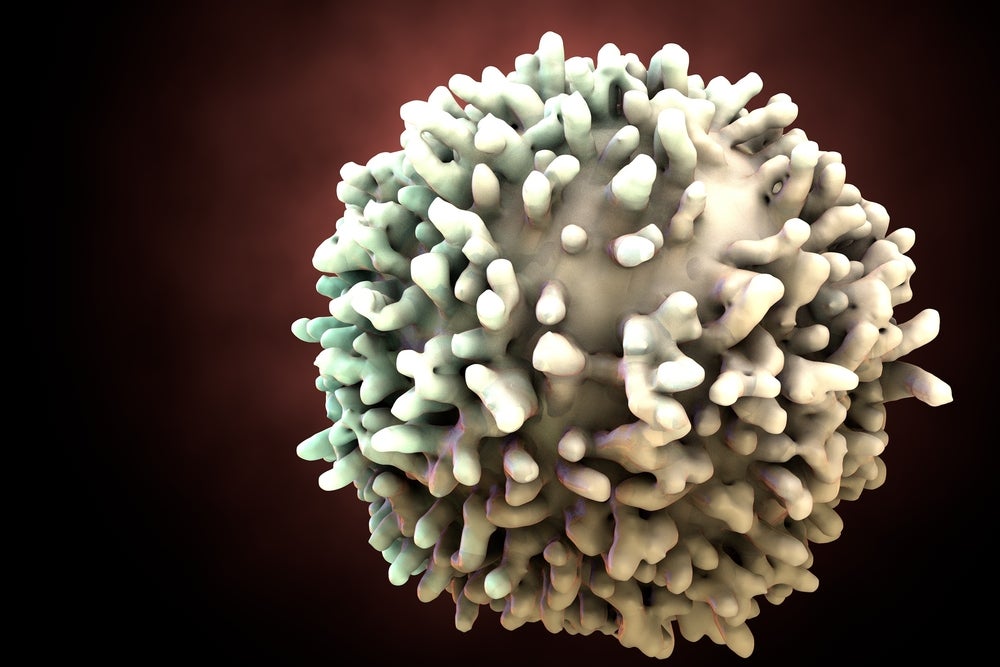
Massachusetts-based Be Biopharma has raised $52m in a Series A round. The financing was led by Atlas Ventures and RA Capital Management. Other investors who participated in the round include Alta Partners, Takeda Ventures and Longwood Fund, which co-founded Be Bio with Seattle Children’s Research Institute’s Dr David Rawlings and Dr Richard James.
The company will use this funding to precisely engineer B cells and create therapies that can treat a range of diseases. Be Bio sees B cells as improving upon existing types of cell and gene therapies.

Discover B2B Marketing That Performs
Combine business intelligence and editorial excellence to reach engaged professionals across 36 leading media platforms.
As a result of the funding, Be Bio’s board of directors will now include RA Capital managing director Josh Resnick, Atlas partner Jason Rhodes and Alta managing Dan Janney.
Be Bio president and director Aleks Radovic-Moreno, who is also an entrepreneur-in-residence at Longwood, is pleased the company has managed to attract sophisticated and experienced investors to the Series A. He notes: “This consortium fully understands the potential of B cells as medicines and they bring a long-term strategic approach to drug development.”
Promise of B cell therapies
“B cells have been an area Longwood has followed for many years because of the tremendous potential B cells have to treat a broad range of diseases,” Radovic-Moreno explains. “However, until recently this potential has not been realised due to the technical challenges of efficiently engineering B cells and the ability to culture enough of the cells generate a clinical dose.
As Rawling and James had done significant pioneering work in precisely engineering B cells, it was “logical” for Longwood to collaborate with them on a new company. Company creation and “creating bridges between academic research and commercial drug development” is central to Longwood’s business model, notes Radovic-Moreno.

US Tariffs are shifting - will you react or anticipate?
Don’t let policy changes catch you off guard. Stay proactive with real-time data and expert analysis.
By GlobalDataThe most common type of cell therapy in development are those that leverage T cells. B and T cells are both immune cells, but they are responsible for conferring different types of immune response.
Radovic-Moreno states that “B cells can be engineered to express a wide variety of proteins, have the potential to generate durable responses, and can be dose-titrated and administered multiple times without the need for toxic preconditioning”. Whereas, “T cells have a short life span and proliferate in vivo, potentially leading to neurotoxicity and cytokine release syndrome and hematopoietic stem cell transplants require toxic preconditioning regimens”. Therefore, B cell therapies could create new avenues for treating severe diseases.
Next steps for Be Bio
Talking specifically, Radovic-Moreno notes the $52m in funding will be used to “rapidly build out our platform and expand our technical capabilities to advance our preclinical research”.
This preclinical research will help Be Bio to determine the best route to take and which therapeutic areas to focus on. “We will go where the science leads us,” states Radovic-Moreno. Be Bio believes that B cell therapies could be effective in autoimmune disease, cancer and monogenic diseases. They could also help to enhance the immune response to infectious diseases.
Following this financing, Be Bio is also on the lookout for “partners who can work with us to realise the full potential of B cells as medicines”, adds Radovic-Moreno.



